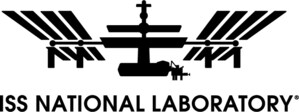KENNEDY SPACE CENTER, Fla., April 25, 2024 /PRNewswire/ -- Arthritis is a crippling disease, affecting approximately one in four adults. It wreaks havoc on our joints by breaking down cartilage, the cushioning between bones. Once that cartilage deteriorates, there's no way to replace it. However, all this might soon change, thanks to a new investigation led by biomedical engineering researchers at the University of Connecticut.
Yupeng Chen, an associate professor for biomedical engineering at the university, is partnering with Eascra Biotech and Axiom Space to leverage the unique conditions available through the International Space Station (ISS) National Laboratory to produce DNA-inspired Janus base nanomaterials (JBNs). Named for the two-faced Roman god Janus, JBNs are a special type of nanoparticle formed by DNA-inspired building blocks with customizable properties, making them an ideal choice over other nanoparticle options for use in a broad range of biomedical applications.
These potentially life-saving nanomaterials could be used to treat more than just arthritis; they can help alleviate an array of ailments, including cancer and neurological disorders. JBNs also provide a novel system for precision delivery of therapeutics, including small-molecule and mRNA drugs, to targeted cells and tissue for better patient outcomes with fewer side effects.
JBNs self-assemble, so environmental influences—like the effects of gravity—can reduce the structural integrity of these nanomaterials, which is why Chen thinks JBNs could benefit from in-space manufacturing. "Self-assembly is different from traditional materials manufacturing in that we don't have control over the assembly process, and we can only influence it," said Chen. "With a microgravity environment, there is no sedimentation force acting on the assembly process, which means the nanoparticles can assemble themselves much easier, making the space station an ideal location to manufacture these crucial nanoparticles."
Chen says JBNs are also uniquely suitable for the complex storage and shipping conditions between Earth and space because they can remain stable at room temperature. This stability eliminates the need for special refrigeration procedures to ensure drugs are stored at the proper temperature, making it easier to get the nanoparticles to remote environments like space as well as different geographic regions on Earth.
The project is part of a series of investigations by Chen and his team. Before this current project, which launched on SpaceX's 30th Commercial Resupply Services (CRS) mission, contracted by NASA, the team launched a proof-of-concept mission in 2023 as part of Axiom Space's second commercial astronaut mission, Axiom Mission 2 (Ax-2). That initial investigation, which lasted approximately two weeks, demonstrated that JBNs could better self-assemble in microgravity. Now, the teams want to expand their efforts and see how the nanoparticles perform on a longer mission.
In addition to JBN production, the team is testing specialized hardware built for use in space that provides new analytical capabilities. These expanded capabilities, developed with engineering assistance from Advanced Solutions Life Sciences, will help maximize the science return from each mission and enable real-time quality control and quality assurance assessments for in-space production.
As part of a separate but related investigation that flew to the orbiting laboratory in January, Chen and his team sent engineered cartilage tissue to space to evaluate how effective JBNs were at repairing damaged tissue. The project, which was funded by the U.S. National Science Foundation, is still ongoing, but Chen says initial results from the research are very promising.
This most recent investigation will build on the project by examining how well JBNs work to reduce joint inflammation and potentially regenerate cartilage and whether the JBNs can be further developed to treat other chronic diseases such as cancer. Results could help researchers formulate new nanoparticle therapeutics for use both on Earth and in space.
The project could also contribute to the development of a robust commercial economy in low Earth orbit, as the Chen lab partnered with Eascra Biotech and Axiom Space to one day establish a manufacturing capacity that would be used to produce these types of therapeutic biomaterials in space and treat diseases on Earth and in space. But before that can happen, the processes and standards for nanomaterial manufacturing must be established and tested. Data collected from this investigation will help inform Chen's future flights and in-space manufacturing efforts.
To download a high-resolution photo for this release, click here.
About the International Space Station (ISS) National Laboratory:
The International Space Station (ISS) is a one-of-a-kind laboratory that enables research and technology development not possible on Earth. As a public service enterprise, the ISS National Laboratory® allows researchers to leverage this multiuser facility to improve quality of life on Earth, mature space-based business models, advance science literacy in the future workforce, and expand a sustainable and scalable market in low Earth orbit. Through this orbiting national laboratory, research resources on the ISS are available to support non-NASA science, technology, and education initiatives from U.S. government agencies, academic institutions, and the private sector. The Center for the Advancement of Science in Space™ (CASIS™) manages the ISS National Lab, under Cooperative Agreement with NASA, facilitating access to its permanent microgravity research environment, a powerful vantage point in low Earth orbit, and the extreme and varied conditions of space. To learn more about the ISS National Lab, visit our website.
As a 501(c)(3) nonprofit organization, CASIS accepts corporate and individual donations to help advance science in space for the benefit of humanity. For more information, visit our donations page.
Media Contact: |
Patrick O'Neill |
904-806-0035 |
|
|
Managed by the Center for the Advancement of Science in Space, Inc. (CASIS) |
_______________________________________________________________________________ |
6905 N. Wickham Rd., Suite 500, Melbourne, FL 32940 · 321.253.5101 · www.ISSNationalLab.org |
SOURCE International Space Station National Lab

WANT YOUR COMPANY'S NEWS FEATURED ON PRNEWSWIRE.COM?
Newsrooms &
Influencers
Digital Media
Outlets
Journalists
Opted In





Share this article